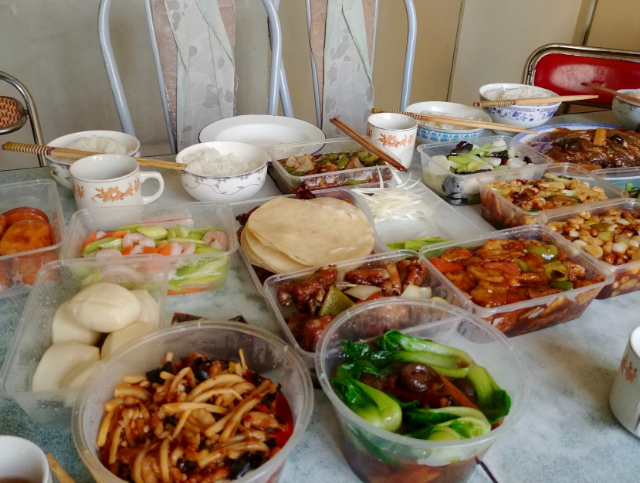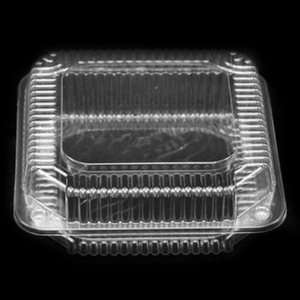A new food packaging study suggests that plastic contact is making us fat. Specifically, plastics in the processing and packaging systems that touch our food. A crazy idea? Experts are taking a serious look at recommending a ban…
 Plastic packaging – which may be especially dangerous when used with hot and
Plastic packaging – which may be especially dangerous when used with hot and
oily foods – is unbiquitous, expecially in the take-out restaurant sector…
The skinny
According to a recent Guardian story: “…Researchers at the Norwegian University of Science and Technology(NEWST) set out to determine what chemical compounds exist in 34 common plastic items that touch things we eat, such as yogurt cups, juice bottles, styrofoam meat trays, gummy-candy packages, and plastic wrap used for produce and cheese, as well as items often found in kitchens, like polyurethane placemats and sponges.”
Don’t smirk
If tiny amounts – measured in micrograms – of certain drugs (notably hormones) can make a huge difference in the way certain of our bodies’ systems work in radically different ways, what about other powerful chemicals found in plastics – plastics that have become ubiquitous in our daily lives because they are used in the packaging of just about everything we eat? Even fresh produce, in some cases?
What they did
The NEWST team isolated some 55,000 chemicals from plastics used in food packaging and processing but were only able to definitively identify some 629, 11 of which are known to be, ‘metabolic disruptors such as phthalates and bisphenols, which interfere with our bodies’ ability to regulate weight, among other troubling health effects’.
What they found
However… Far more of the chemicals isolated by the team than those 11, when tested on live animal cells (no actual mice, much lees humans were used in testing), also caused adipogenesis – the process underlying obesity, in which cells proliferate and accumulate an excess of fat. In fact study report author Martin Wagner says, triggered adipogenesis. More troubling, Wagner reports that, ‘most of these mystery chemicals are unknown, unstudied and unregulated’.
The takeaway
Just this past March, scientists at McGill University demonstrated that the carcinogen bisphenol, (BPS), found in food labels such as produce stickers, can migrate through food packaging materials into the food they touch, Stéphane Bayen, an associate professor of food science and agricultural chemistry, revealed in a release. Experts have cautioned for years against plastic food containers, especially for hot or oily foods which can render the plastics unstable and increase the risk of chemical leaching. All the more reason to suspect a link.
Another alarming finding: “There’s a chance that even plastic producers are not sure what chemicals end up in the products they make,” freelance journalist Adrienne Matei wrote in her Guardian story. “But it’s clear that these plastics and the chemicals associated with them are making their way into our bodies – by transference from packaging, but also in the form of microplastics, with humans eating an estimated 44lbs of plastic in our lifetimes.
My take
I want to know why we’re only just now learning about the true impact these chemicals, from common plastic to which we are all exposed, every day?
Food processors and packagers are clearly in love with plastics. They quickly found plastics were far convenient and less shatter-prone than the glass that formerly ruled their industry Plastics also allows food packagers to diversity the formats and shapes of packaging, rather than being stuck with traditional jars and bottles. It’s been suggested by more than one industry observer that the food people would do almost anything to avoid having their beloved plastics taken away. Might that include suppressing the facts about plastic contact with out food?
I’m with Matei when she declares that, “When we think about cutting junk out of our diets, the culprits shouldn’t just be candy and soda – plastic needs to go, too.”
~ Muse on that…
~ Maggie J.

